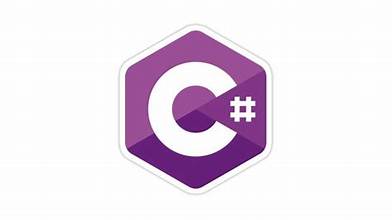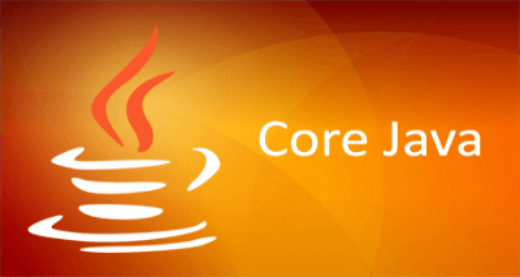
The C# Programming Language: A Comprehensive Guide
Introduction to C#:
C# is a modern, object-oriented programming language developed by Microsoft as part of its .NET initiative. It was first released in 2000 as a successor to C and C++, aiming to provide a simple, yet powerful language for building a wide range of applications. C# is widely used for developing desktop, web, mobile, and gaming applications, making it one of the most versatile and popular programming languages in the industry.
History of C#:
Origins:
- The development of C# began in the late 1990s under the leadership of Anders Hejlsberg, a prominent software engineer at Microsoft.
- C# was designed to address the shortcomings of existing programming languages such as C++ and Java, while also leveraging the strengths of these languages.
Release:
- The first version of C# (C# 1.0) was released in 2000 as part of the .NET Framework 1.0.
- Subsequent versions of C# have been released in tandem with new versions of the .NET Framework, with each version introducing new features and improvements.
Standardization:
- C# was submitted to the International Organization for Standardization (ISO) and the International Electrotechnical Commission (IEC) in 2000.
- It was approved as an international standard (ISO/IEC 23270) in 2002, ensuring its widespread adoption and interoperability.
Features of C#:
Object-Oriented:
- C# is a fully object-oriented language, meaning that everything in C# is an object.
- It supports classes, inheritance, polymorphism, encapsulation, and other object-oriented features.
Strong Typing:
- C# is a strongly typed language, meaning that every variable and expression has a type that is known at compile time.
- Strong typing helps catch errors early in the development process and improves code reliability and maintainability.
Garbage Collection:
- C# features automatic memory management through a garbage collector.
- Developers don’t need to manually allocate and deallocate memory, reducing the risk of memory leaks and other memory-related bugs.
Language Integrated Query (LINQ):
- LINQ is a powerful feature of C# that allows developers to query and manipulate data from various sources such as collections, databases, and XML.
- LINQ provides a unified syntax for querying different data sources, making it easier to work with data in C# applications.
Asynchronous Programming:
- C# provides built-in support for asynchronous programming using the async and await keywords.
- Asynchronous programming enables writing non-blocking code, essential for handling I/O-bound operations such as network requests.
Delegates and Events:
- C# supports delegates, which are type-safe function pointers that allow for implementing callbacks and event handling.
- Events in C# provide a way to notify subscribers when a particular action or state change occurs.
C# Syntax:
Hello World Example:
using System;
class Program
{
static void Main()
{
Console.WriteLine("Hello, World!");
}
}Variables and Data Types:
- C# supports various built-in data types such as integers, floating-point numbers, booleans, characters, strings, and more.
- Variables in C# can be declared using the var keyword or with explicit type annotations.
Control Flow:
- C# supports traditional control flow constructs such as if statements, for loops, while loops, switch statements, and try-catch-finally blocks.
- C# also supports conditional expressions, allowing for concise and expressive code.
Functions and Methods:
- Functions in C# are defined using the method syntax, with optional parameters and return types.
- C# supports both static and instance methods, as well as method overloading and overriding.
Classes and Objects:
- C# is a class-based language, meaning that everything is an object and objects are instances of classes.
- Classes in C# support inheritance, interfaces, properties, and access modifiers, allowing for code reuse and modular design.
Generics:
- C# features generic types and methods, which allow for writing reusable, type-safe code.
- Generics enable developers to define classes, interfaces, and methods that work with any data type.
C# for Application Development:
Desktop Applications:
- C# is commonly used for building desktop applications using frameworks such as Windows Presentation Foundation (WPF) and Windows Forms.
- These frameworks provide rich user interfaces and access to native Windows APIs for building feature-rich desktop applications.
Web Applications:
- C# can be used for building web applications using frameworks such as ASP.NET Core and ASP.NET MVC.
- ASP.NET Core is a cross-platform, high-performance framework for building modern web applications, while ASP.NET MVC follows the Model-View-Controller (MVC) architectural pattern.
Mobile Applications:
- C# is used for building mobile applications on the Xamarin platform, which allows for developing native iOS and Android apps using C# and .NET.
- Xamarin.Forms provides a way to write cross-platform mobile applications with a single codebase, targeting multiple platforms.
C# for Game Development:
Unity Game Engine:
- C# is the primary programming language used for game development in the Unity game engine.
- Unity provides a powerful and flexible development environment for creating 2D and 3D games, with support for a wide range of platforms including PC, consoles, and mobile devices.
Game Development Libraries:
- C# has a rich ecosystem of game development libraries and frameworks such as MonoGame and SFML.NET.
- These libraries provide low-level access to graphics, audio, input, and other game-related features, allowing for building custom game engines and tools.
C# Tools and IDEs:
Visual Studio:
- Visual Studio is the primary integrated development environment (IDE) for C# development, offering a rich set of features for writing, debugging, and deploying C# applications.
- Visual Studio provides tools for code editing, refactoring, version control, debugging, and performance profiling.
Visual Studio Code:
- Visual Studio Code is a lightweight, cross-platform code editor that supports C# development through extensions.
- Visual Studio Code offers features such as IntelliSense, debugging, and Git integration, making it a popular choice for C# developers working on different platforms.
Conclusion:
C# is a powerful and versatile programming language with a wide range of applications, from desktop and web development to mobile and game development. Its rich set of features, strong typing, and modern syntax make it an attractive choice for developers looking to build high-quality, scalable applications. With the continued evolution of the .NET ecosystem and the growing adoption of platforms such as Xamarin and Unity, C#’s popularity is expected to continue to rise in the coming years. Whether you’re a beginner learning to code or an experienced developer building complex applications, C# has something to offer for everyone.
This comprehensive guide covers various aspects of the C# programming language, from its history and features to its applications in different domains such as desktop, web, mobile, and game development. Whether you’re new to C# or looking to deepen your understanding, this guide serves as a valuable resource for developers at all levels.





